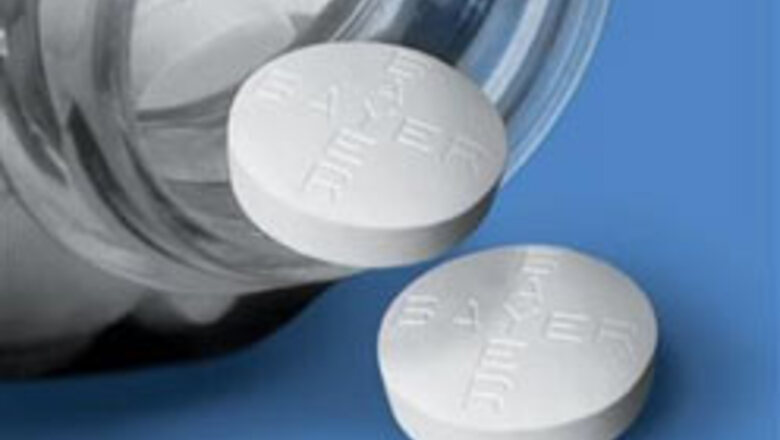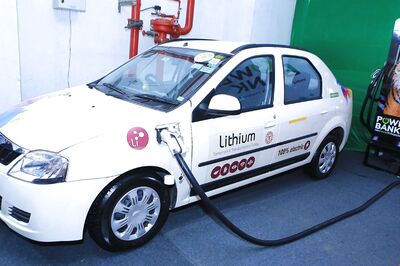
views
Washington: Popular painkillers such as aspirin, ibuprofen and acetaminophen can raise blood pressure and thus the risk of heart disease among men, US researchers reported on Monday.
Men who took such drugs for most days in a week were about one-third more likely to be diagnosed with high blood pressure than men not taking them, the researchers found.
Their findings, published in the Archives of Internal Medicine, reinforce a study published in 2002 that these commonly used drugs raise blood pressure in women.
"This is a potentially preventable cause of high blood pressure," Dr John Forman of Brigham and Women's Hospital in Boston, who led the study, said in a statement.
Millions of people take the painkillers as pills every day to treat headaches, arthritis, muscle pulls and other aches and pains.
"These are the three most commonly used drugs in the United States," Dr Gary Curhan, who also worked on the study, said in a telephone interview.
For their study, the researchers looked at a continuing study of male health professionals. After they filtered out everyone who already had high blood pressure and other problems, they had 16,000 men whose records they checked for a four-year period.
Men who took acetaminophen (paracetamol), sold generically and under the Tylenol brand name, six or seven days a week were 34 per cent more likely to be diagnosed with high blood pressure than men who did not take analgesics.
Men who took aspirin that regularly were 26 per cent more likely to have high blood pressure than non-users. For non-steroidal anti-inflammatory drugs, or NSAIDS, which include ibuprofen and naproxen, the increased risk was 38 per cent.
PAGE_BREAK
Frequency a factor
Men who took 15 or more NSAID pills a week were 48 percent more likely than non-users to have high blood pressure.
The drugs can affect the ability of blood vessels to expand, and may also cause sodium retention -- two factors that can both raise blood pressure.
Being overweight reduced the risk from acetaminophen, but raised the risk from NSAIDS, the researchers found.
However, men who are advised by a doctor to take an aspirin a day to reduce the risk of heart attack and stroke should not stop taking them, cautioned Curhan. "The benefit outweighs the risk," he said in a telephone interview.
The American Heart Association issued its own advisory based in part on the report's findings.
"We advise physicians to start with non-pharmacologic treatments such as physical therapy and exercise, weight loss to reduce stress on joints, and heat or cold therapy," said the Association's Dr Elliott Antman, also of Brigham and Women's Hospital.
Makers of the analgesics defended their products.
"In two recent studies, aspirin did not appear to cause hypertension and, in fact, some researchers believe that timed administration of low-dose (aspirin) could provide an additional approach for blood pressure control of certain patients with mild essential hypertension," Bayer Consumer Care said in a statement.
McNeil Consumer Healthcare, which makes Tylenol, said its study of 1,500 heavy Tylenol users showed no heart attacks or strokes for a year.
"In addition, published studies of acetaminophen used for as long as two years have not demonstrated an increased risk of these cardiovascular events," the company said.




















Comments
0 comment